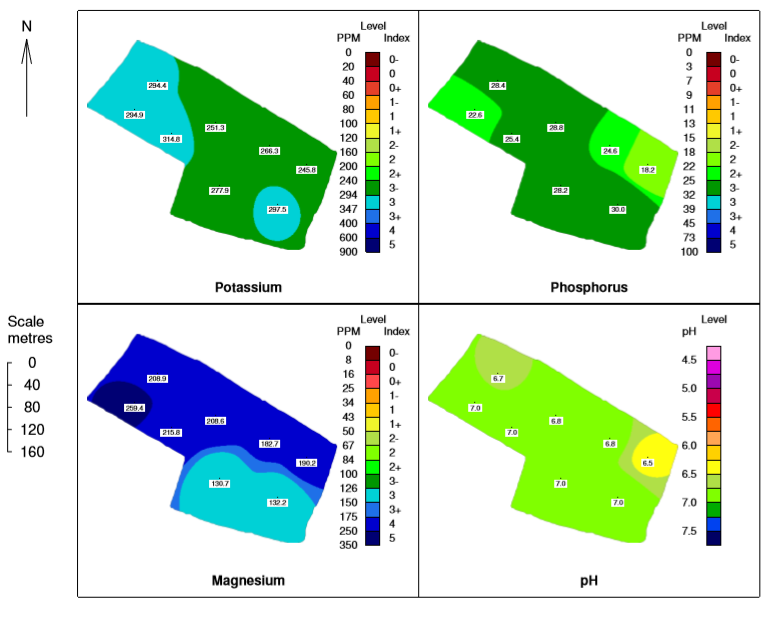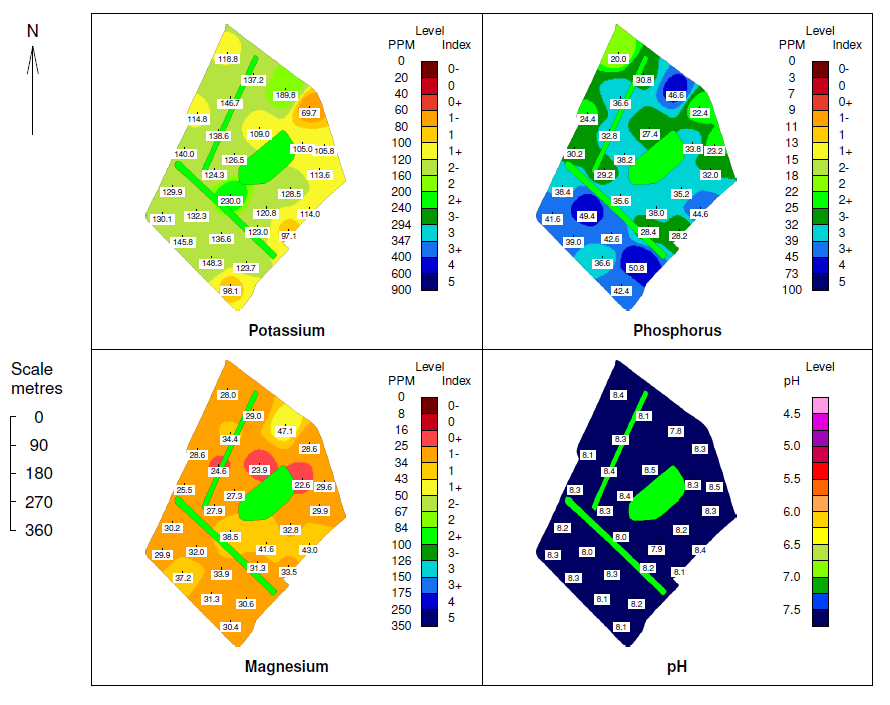Just had my first Soyl samples back and I'm surprised that a lot of our area is high in Mg, we normally apply FYM, urea, MOP and TSP, would any of these problems be exacerbating the situation?
Any products we should use/avoid?
What nutrients will the Mg be locking up?
Any products we should use/avoid?
What nutrients will the Mg be locking up?










